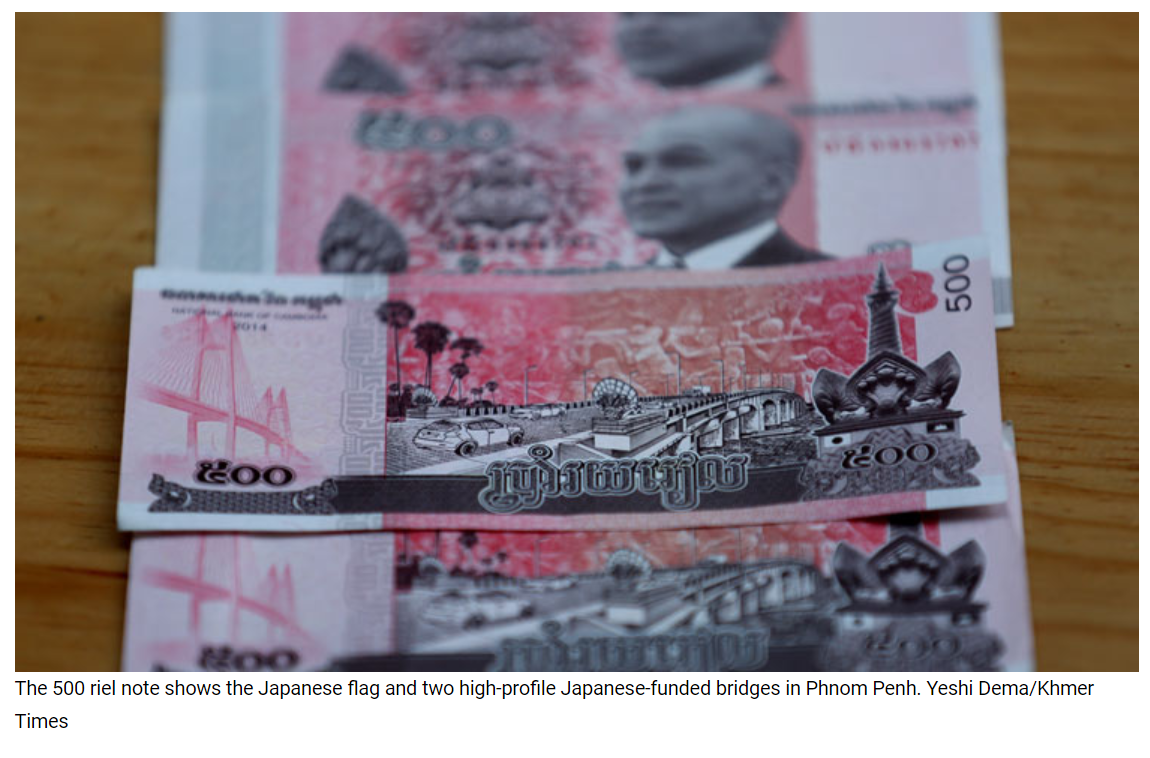JICA: “We’re focusing on Cambodian entrepreneurship in 2020”
In an exclusive interview with Khmer Times reporter Yeshi Dema, Kotaro Tanaka, deputy chief representative of Japan International Cooperation Association (JICA), explains the mission of the government-to-government’s organisation in the country.
KT: What is the role of JICA in Cambodia?
Kotaro: We support the Cambodian government’s efforts in reforming, developing and improving both the economy and society as a whole. This includes promoting agriculture sector, improving infrastructure, enhancing social development through healthcare and education and strengthening governance through legal reform.
KT: Can you give some examples of successes you have achieved so far?

Kotaro: Historically speaking, we have supported Cambodia with water supply issues. During the civil war and through the 1970s, water-supply capacity plunged to approximately 40 percent of what it was. Black-market sales of water, illegal connections and diversions and other forms of systematic corruption had become the norm, while leakage and water theft was widespread, all of which exacerbated the situation. The vast majority of residents had no access to water supply and bought their water from water sellers and people in the neighbourhood, often at prices six to 20 times the normal price.
Although Phnom Penh began tackling the problem in 1983, the scars of the civil war were still fresh and so it wasn’t easy. As part of the process that became known as “The Miracle of Phnom Penh”, JICA, along with Water Minister Ek Sonn Chan, we helped Cambodia’s government implement the necessary reform, physical infrastructures and addressed the technical issues. We succeeded in providing almost all of the capital city’s million-plus population with a safe and stable water supply at a low cost.
KT: Are there any further projects JICA are particularly proud of?
Kotaro: Every citizen in Cambodia is aware of Chroy Changwar Bridge or the Cambodian-Japan Friendship Bridge as it is also known. The symbolic bridge was built in 1963 by Japanese contractors but a part of the bridge was destroyed by the Khmer Rouge during the conflict. Straight after the civil war ended [in 1979], it was JICA’s first project to rebuild it. In 2019, as part of our ongoing work with the Cambodian government, the bridge underwent a major reinvention to increase the volume of traffic that can cross it.
A further project to highlight is the four-stage installation of essential drainage pipes in the Trebek basin and adjacent area of the municipality of Phnom Penh we undertook to counterattack the flooding problems that caused trouble for the people in the city.
KT: And now two of your other projects, aimed at boosting Cambodia’s economy, are being celebrated by appearing on the new 500 riel banknote. Can you tell us more?
Kotaro: Yes, they are Neah Loueng Bridge (Tsubasa Bridge) and Kizuna Bridge, both regarded as our most prominent achievements. Tsubasa Bridge was a vital missing link along Highway 1 or the “Asian Highway” which was completed in 2014 to expand connectivity with Cambodia and Vietnam, to improve trade routes. We will also be involved in the development of National Road number 5, which will eventually link Tokyo, South Korea, China, India and Pakistan back to Cambodia.
KT: This ties in with a key initiative of yours, doesn’t it?
Kotaro: Yes. Better integration and macro-regional economic activity between Cambodia and neighbouring countries is a cornerstone of our work. This evolving and increasing inter-connectedness between the nations ultimately boosts trade and therefore the economy.
Sihanoukville Port is a prime example of this. JICA supported its establishment through several projects, including the creation of necessary physical infrastructures, to increase its trading capacity, again with the end goal of boosting the economy.
KT: How has the current global pandemic disrupted JICA?
Kotaro: Several of the activities we had in the pipeline for the year have been stalled and the physical construction work on several ongoing projects has been hampered. Anything which requires human-to-human contact is being badly affected.
KT: What is on JICA’s agenda for the rest of 2020?
Kotaro: We aim to continue our traffic management work. This started two years ago with our traffic lights project two years back and in collaboration with the Cambodian government. We are looking into road safety issues. People’s reluctance to wear crash helmets while on their motorbikes and scooters is a real problem. We have to re-educate road-users about the dangers and help dramatically cut down the number of accidents for a safer future.
Other noteworthy projects incl include road and bridge maintenance and inspection, a
new container development at Sihanoukville Port, improving logistics systems, and the construction of a small hydropower plant in Ratanakiri province. Underpinning all of these initiatives is JICA’s mission to transfer Japan’s business management techniques into the fabric of Cambodia’s own business sector. We are also focusing more on supporting and cultivating entrepreneurship in the country.
Source: https://www.khmertimeskh.com/50714660/714660/


 English
English




